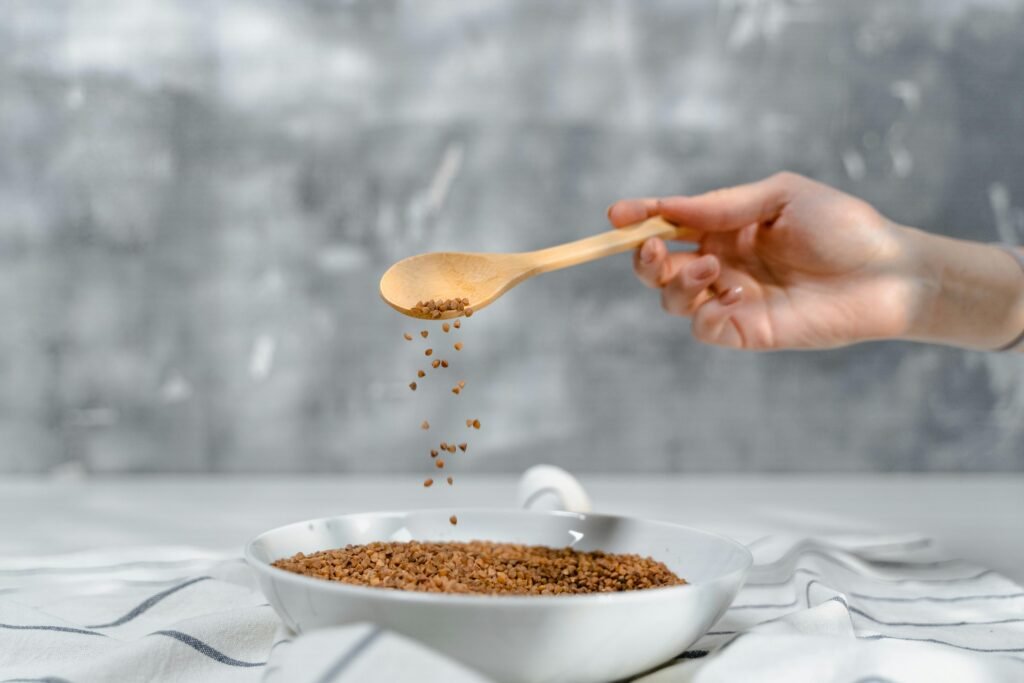Navigating the journey of women’s health can often feel like a winding road with a few bumps along the way, but understanding the importance of estrogen can be your trusty guide. Estrogen plays a crucial role in maintaining healthy hormone levels, influencing everything from mood and energy to overall well-being. Luckily, there are plenty of ways to boost estrogen naturally by incorporating natural estrogen sources into your diet. Think of delicious estrogen-rich foods like flaxseeds, tofu, and dried fruits that not only satisfy your taste buds but also help achieve hormonal balance. In this post, we’ll explore how you can embrace these foods and lifestyle changes to support your hormone health, empowering you to feel your best every day.
Understanding the Importance of Estrogen
Estrogen is a crucial hormone for women’s health, playing a vital role in various bodily functions. Let’s explore its significance and impact on hormonal balance.
Role in Women’s Health
Estrogen is often called the “female hormone,” but its influence extends far beyond reproductive health. This powerful hormone affects multiple systems in the body, shaping women’s overall well-being.
In the reproductive system, estrogen regulates menstrual cycles and supports fertility. It’s essential for developing secondary sexual characteristics during puberty and maintaining bone density throughout life.
Estrogen also impacts cognitive function, mood regulation, and cardiovascular health. Studies have shown that adequate estrogen levels can help protect against heart disease and improve memory.
Skin health and collagen production are other areas where estrogen plays a crucial role, contributing to skin elasticity and hydration.
Impact on Hormonal Balance
Maintaining proper hormonal balance is key to overall health, and estrogen is a central player in this delicate equilibrium. When estrogen levels are balanced, it works in harmony with other hormones like progesterone and testosterone.
This balance supports regular menstrual cycles, stable moods, and healthy bone density. It also helps regulate metabolism and body weight, which is why some women may experience weight changes during menopause when estrogen levels naturally decline.
However, both excess and deficient estrogen can lead to health issues. Too much estrogen might increase the risk of certain cancers, while too little can result in symptoms like hot flashes, vaginal dryness, and mood swings.
Understanding your body’s estrogen needs is crucial for maintaining optimal health. Regular check-ups and open communication with your healthcare provider can help you stay on top of your hormonal health.
Boost Estrogen Naturally
While hormone replacement therapy is an option for some, many women prefer to boost their estrogen levels naturally. Let’s explore some effective ways to do this through diet and lifestyle changes.
Estrogen-Rich Foods to Include
Incorporating estrogen-rich foods into your diet is a tasty and natural way to support your hormone levels. These foods, also known as phytoestrogens, contain plant-based compounds that mimic estrogen in the body.
According to WebMD, some of the best estrogen-rich foods include:
- Flaxseeds and sesame seeds
- Soybeans and soy products like tofu and tempeh
- Dried fruits, especially apricots and dates
- Berries, particularly strawberries and cranberries
- Nuts, such as pistachios and walnuts

These foods not only provide phytoestrogens but also offer other nutritional benefits like fiber, vitamins, and minerals. Incorporating a variety of these foods into your meals can help support your overall health while naturally boosting estrogen levels.
Remember, balance is key. While these foods can be beneficial, it’s important not to overdo it. Always consult with a healthcare professional before making significant changes to your diet.
Lifestyle Changes for Healthy Hormone Levels
Beyond diet, certain lifestyle changes can positively impact your estrogen levels and overall hormonal health. These changes can complement a balanced diet and help create an environment where your body can thrive.
Regular exercise is crucial for hormonal balance. Aim for a mix of cardio and strength training exercises. However, be cautious of overexercising, as it can potentially lower estrogen levels.
Stress management is another key factor. Chronic stress can disrupt hormone production, so incorporate stress-reduction techniques like meditation, yoga, or deep breathing exercises into your daily routine.
Adequate sleep is essential for hormone regulation. Aim for 7-9 hours of quality sleep each night. Establish a consistent sleep schedule and create a relaxing bedtime routine to improve sleep quality.
Lastly, be mindful of environmental factors. Some chemicals, known as endocrine disruptors, can interfere with hormone function. Choose natural products when possible and avoid plastics containing BPA.
Discovering Natural Estrogen Sources
Beyond diet and lifestyle, there are other natural ways to support healthy estrogen levels. Let’s explore how to incorporate phytoestrogens and personalize your nutrition for optimal hormonal health.
Incorporating Phytoestrogens in Diet
Phytoestrogens are plant-based compounds that can mimic the effects of estrogen in the body. While they’re not identical to human estrogen, they can help support hormonal balance when consumed as part of a balanced diet.
There are several types of phytoestrogens, including isoflavones, lignans, and coumestans. Each type is found in different plant sources and may have slightly different effects on the body.
Isoflavones, for example, are abundant in soy products and can be particularly beneficial for menopausal symptoms. Lignans, found in flaxseeds and whole grains, may offer protective effects against certain cancers.
When incorporating phytoestrogens into your diet, variety is key. Aim to include a range of sources rather than relying heavily on one type. This approach ensures you’re getting a balanced mix of nutrients along with the phytoestrogens.
Remember, while phytoestrogens can be beneficial, they’re not a replacement for medical treatment if you have a diagnosed hormonal imbalance. Always consult with a healthcare professional before making significant dietary changes.
Personalized Nutrition for Hormonal Health
Every woman’s body is unique, and what works for one person may not work for another. That’s why personalized nutrition can be a game-changer when it comes to supporting hormonal health.
Research suggests that factors like age, weight, overall health, and even genetic makeup can influence how your body processes and responds to different foods and nutrients.
A personalised approach might involve:
- Working with a nutritionist or dietitian to create a tailored meal plan
- Keeping a food diary to track how different foods affect your symptoms
- Regular hormone level testing to monitor the effects of dietary changes
- Adjusting your diet based on your menstrual cycle or life stage (e.g., perimenopause)
Remember, hormonal health is about more than just estrogen. A truly personalised approach considers the interplay of all your hormones and how different foods and lifestyle factors affect this delicate balance.
While it may take some time and experimentation to find what works best for you, the benefits of a personalised approach to nutrition can be significant, potentially leading to improved energy levels, mood stability, and overall well-being.
